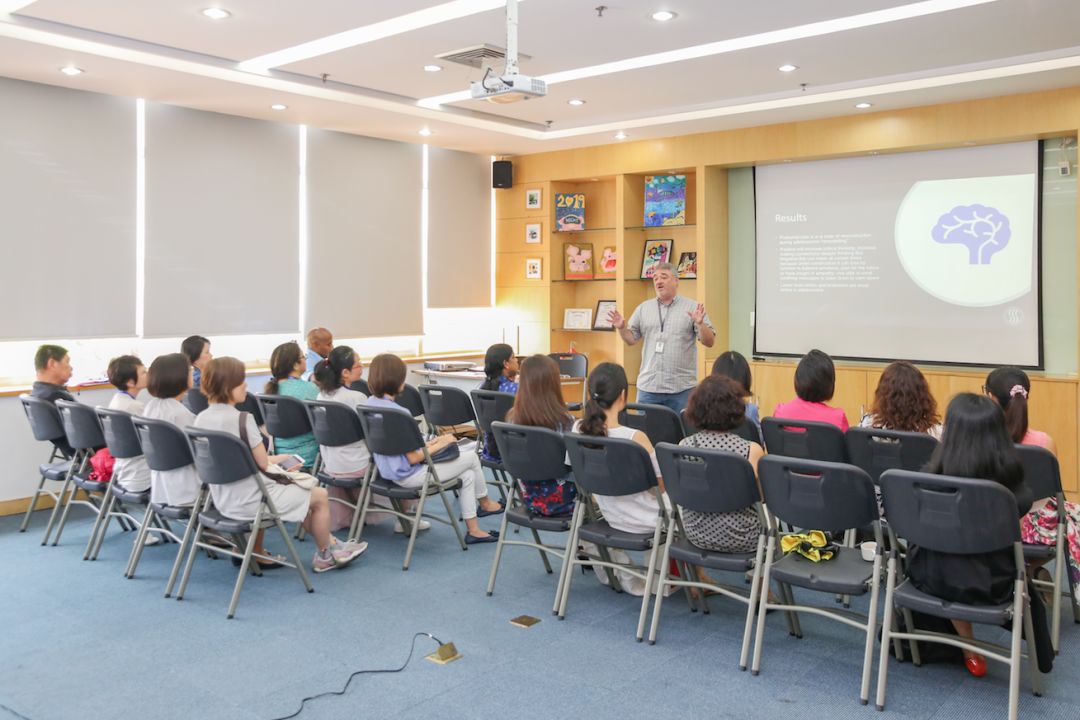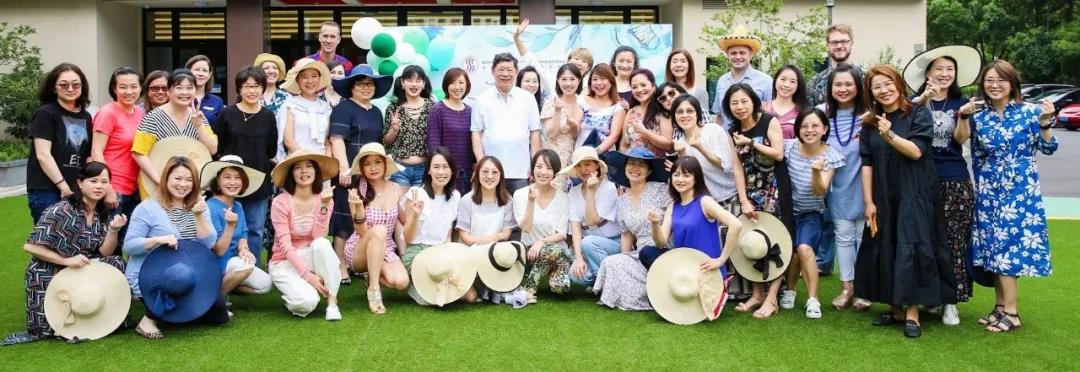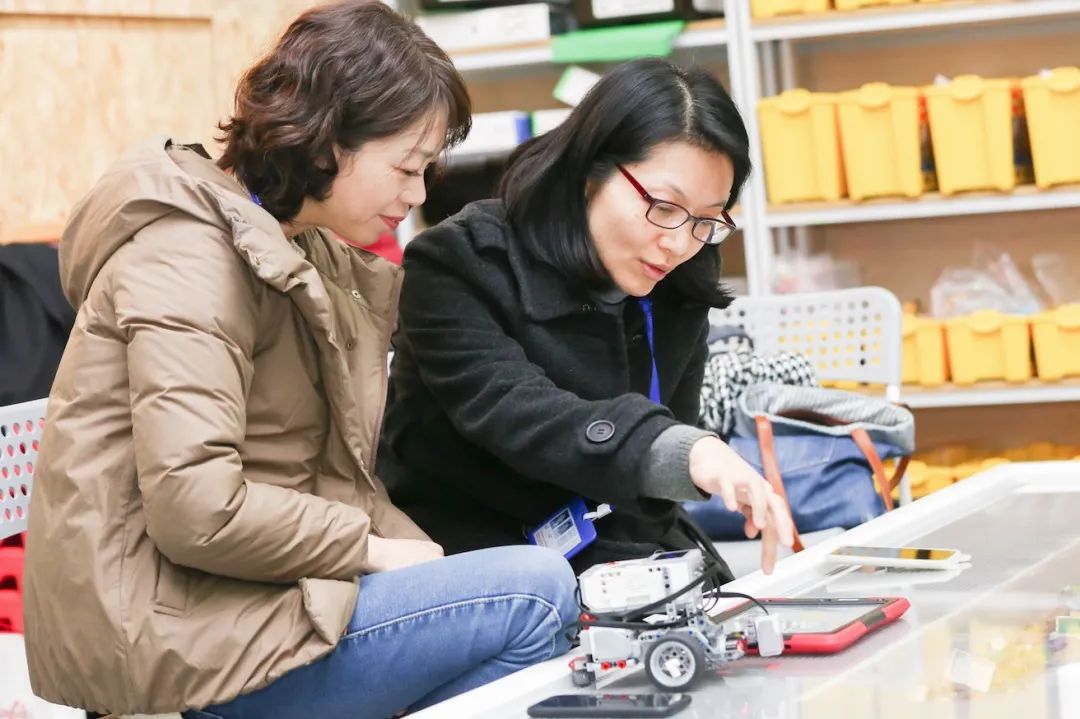Last Wednesday, our senior school Head of Counselling Mr. Mark DONAGHER and Grade 7 to 9 Counsellor Mr. Alan WEST gave a Parent Education workshop on the subject of the ‘Teenage Brain’. It received great feedback from our parents and was a great start to our Parent Education Programme.
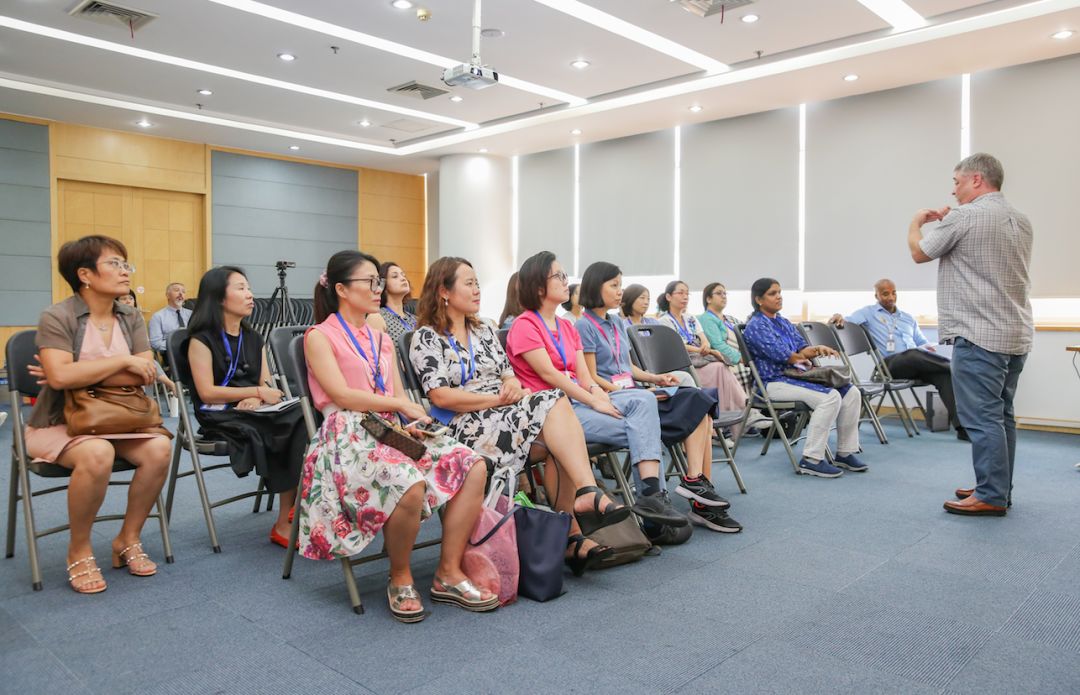
Between the ages of 12 to 24, the changes in a teenager’s brain are both critical and often maddening. It’s no wonder that many parents approach their child’s adolescence with confusion and anxiety.
Understanding the science behind the developing teenage brain helps parents to turn one of the most challenging developmental periods in their children’s lives into one of the most rewarding.
So, what is happening?
In a nutshell, the cortex, the frontal part of the brain is undergoing a ‘reconstruction’. This part of the brain is the master control of thinking, reflection, memory, decision making and self-awareness.
Meanwhile, the limbic area (which is in charge of emotions) is at its most active state.
Subsequently, this can mean that teens have the tendency to lose their ability to balance emotions, plan for the future or have insight or empathy. However, it is also when the brain is increasing its critical-thinking function and able to make connections through deeper thinking.
This massive reconstruction of the brain poses both challenges and opportunities.

How should parents react?
“Parents need to give respect to remodelling teens,” shared Mr. Alan WEST. “Keep in mind what they are going through and make adjustments for the fact that the teenage mind is at times shaped by a construction zone.”
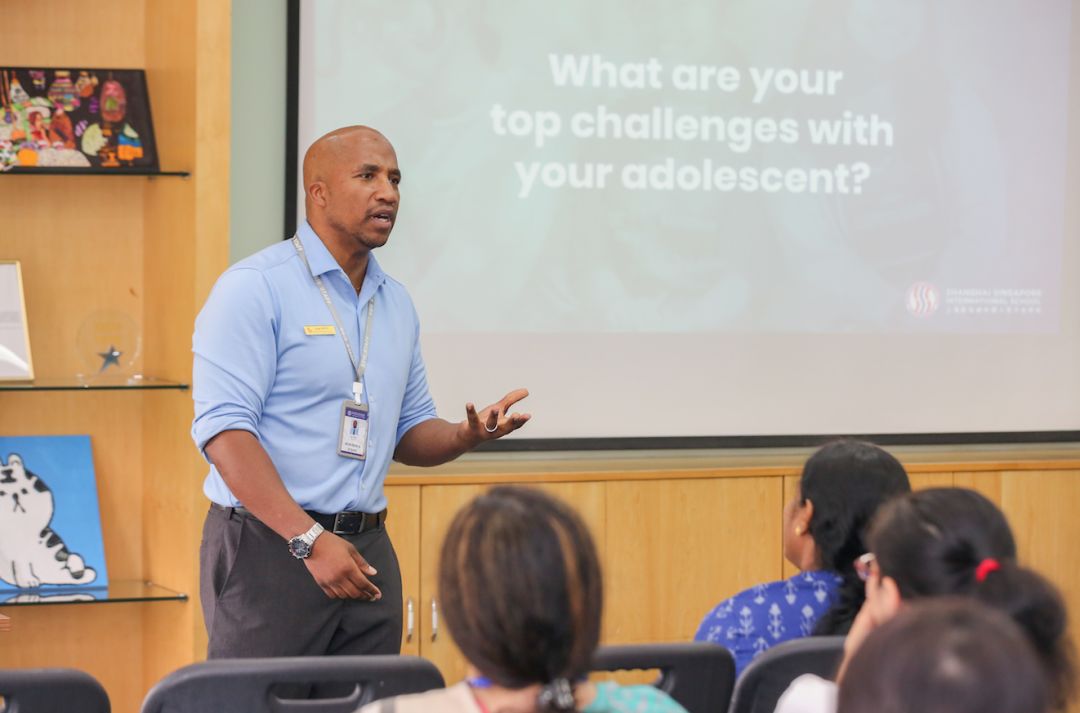
While the child is busy exploring, making external connections and trying to find their place in the bigger world, parents should continue to maintain a connection with the teen to protect, provide their needs and prepare them for adulthood.
In times of conflict, here are two easy steps to take:
1. Do an Emotional Quotient (EQ) check, before you try to connect.
Remember that the right thing, said at the wrong time, is the wrong thing.
Remember that the right thing, said in the wrong manner, is the wrong thing.
2. Be clear on why you are engaging…to understand or to instruct.
For optimal results, both actions – Understand or Instruct should not happen at the same time; the child may be confused by your true purpose.
Instruct at a time when the child is calm and ready to listen.
To understand better, ask and listen with an open heart and mind.
At SSIS, we are committed to develop a lifelong learning community. We hope all parents can learn and grow with their children.
